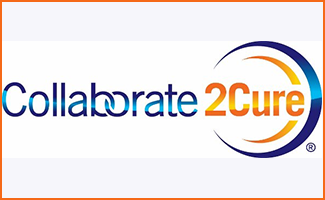
Collaborate2Cure is back starting on May 10 at the Kauffman Foundation and the topic is Clinical Outcomes and Value-Based Care.
“Value-based care” is a healthcare model where the amount paid for healthcare is based on health outcomes. Providers are rewarded for helping patients improve their health, reduce the incidence and effects of chronic disease, and live healthier lives as evidenced by data. Value-based care differs from a fee-for-service approach, in which providers are paid based on the number of services they provide. The “value” in value-based care is a result of health outcomes versus the cost of delivering those outcomes. It is essentially quality verse quantity. The fee-for-value model will drive down healthcare costs while improving clinical outcomes and helping people lead healthier lives.
The Collaborate2Cure Clinical Outcomes and Value-Based Care program will be co-chaired by Dr. Stacy Farr, University of Missouri- Kansas City and Dr. Carole Decker, Saint Luke’s Mid America Heart Institute. This series will be a monthly event at the Kauffman Foundation Conference Center with a networking opportunity after each event. Collaborate2Cure will also be available via livestream on Zoom.
“There is no question that the transition from a volume- to value-based healthcare system in the United States is difficult, for all stakeholders,” said Stacy Farr. “The Quality & Value Innovation Consortium (QVIC) and these Collaborate2Cure sessions allow a novel opportunity for Kansas City healthcare systems, providers, researchers, and purchasers to collaborate in piloting innovations in healthcare delivery to improve the quality and value of patient care and health outcomes.”
 Collaborate2Cure was launched in 2016 as a platform for scientists to collaborate around a specific problem to identify innovative solutions to that problem. Scientific collaboration can cultivate more creativity and increase funding for the region. This program provides regional researchers the opportunity to build scientific relationships that are mutually beneficial to everyone.
Collaborate2Cure was launched in 2016 as a platform for scientists to collaborate around a specific problem to identify innovative solutions to that problem. Scientific collaboration can cultivate more creativity and increase funding for the region. This program provides regional researchers the opportunity to build scientific relationships that are mutually beneficial to everyone.
Using collaboration as a key strategy contributes to Kansas City’s reputation as a national leader in life sciences. If we work together to advance our cause, there is no limit to what we can achieve. To learn more, visit www.collaborate2cure.org